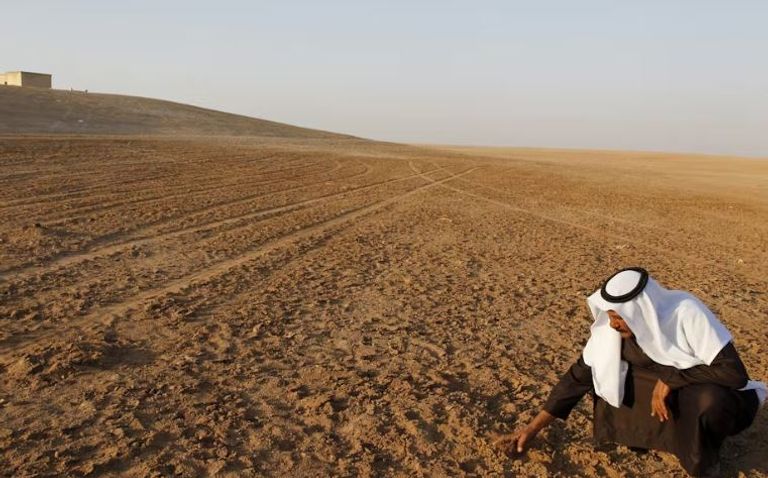Drought Strikes and Wheat Decreases.. Syria Faces a Harsh Political and Economic Test

Syria is facing the most dangerous food crisis in decades, after the worst drought in 36 years led to a 40% decrease in wheat production, placing the new government in front of a highly dangerous economic and humanitarian challenge, amid limited liquidity and import difficulties.
According to estimates from the Food and Agriculture Organization (FAO), Syria will suffer this year from a deficit of nearly 2.73 million tons of wheat, which is enough to feed about 16 million people for a whole year.
Meanwhile, the World Food Programme warned that about 3 million Syrians are at risk of severe hunger, while more than half of the population (25.6 million people) suffers from food insecurity.
According to Reuters, the Syrian government has so far only managed to purchase 373,500 tons of local wheat, which is half the amount from last year, while it needs to import at least 2.55 million tons to meet its needs.
However, Damascus has not announced any major deals and relies only on small shipments not exceeding 200,000 tons through direct contracts with local importers.
Syria has received limited emergency support, most notably 220,000 tons of wheat from Iraq and 500 tons of flour from Ukraine. However, these quantities remain far from bridging the growing gap.
Meanwhile, Russia, the largest supplier previously, has stopped supplying since last December due to delayed payments and declining confidence in the new government's ability to pay.
On the other hand, local farmers are trying to withstand the disaster; in Hasakah and Homs, drought has destroyed most crops. One farmer says: "We planted 100 dunams and harvested nothing," while another was forced to use inedible wheat as feed for livestock.
Last May, U.S. President Donald Trump announced the lifting of sanctions imposed on Syria, in a move considered a strategic shift to support its economic recovery after the overthrow of Bashar al-Assad. However, banking restrictions and asset freezes still hinder financial transfers, obstructing the government's ability to conclude large import contracts.
According to the U.S. Department of Agriculture, Syria will need to import 2.15 million tons of wheat during the 2025-2026 season, an increase of 53% from last year, which is the largest quantity in its modern history.
Wheat is the backbone of the subsidized bread program, one of the last remaining social safety nets for Syrians. However, the decline in local production and the difficulty of imports herald a severe bread crisis, which could turn into a political and economic test for President Ahmad al-Shara and his government, which is seeking to rebuild the country after 14 years of war.
While Syrians await the upcoming rainy season in hopes of alleviating the crisis, the Syrian economy faces a tough battle to secure bread, the most sensitive commodity in the livelihood of citizens and one of the pillars of social stability.